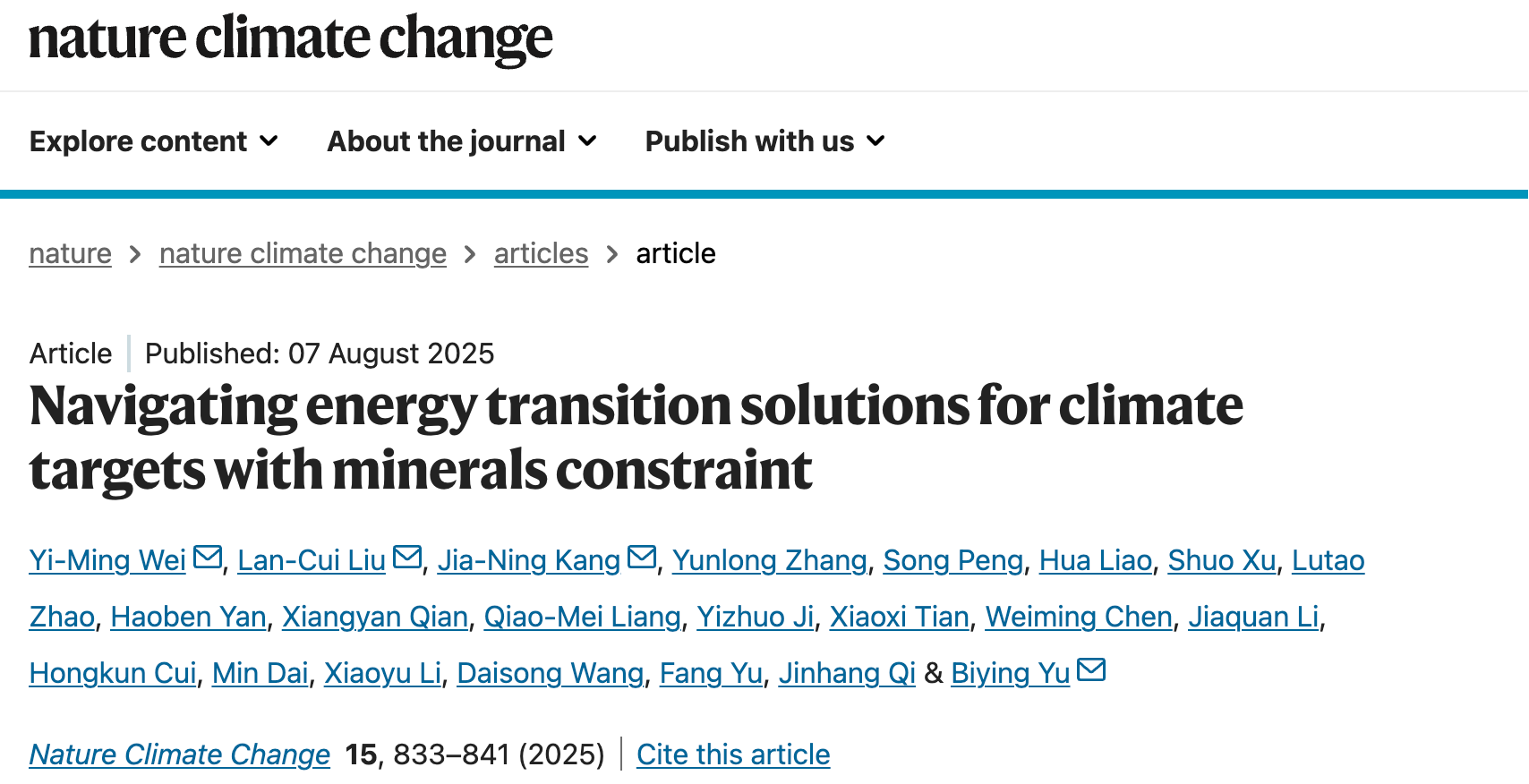The Research Achievement Jointly Completed by Professor Liu Lancui from the School of National Safety and Emergency Management Was Published in Nature Climate Change
Recently, the research achievement, titled "Navigating energy transition solutions for climate targets with minerals" and jointly completed by Professor Liu Lancui from the School of National Safety and Emergency Management, was published in Nature Climate Change. The paper was selected as a Research Highlight of Nature Climate Change.They systematically quantify global and regional demand and shortage risks for 40 critical minerals across 17 technologies under all pathways in the Sixth Assessment Report of the Intergovernmental Panel on Climate Change. And they propose better solutions that balance emissions reduction with resource constraints and regional equity.

The abstract of the paper is as follows:
Urgent decarbonization is imperative, yet mineral scarcity may threaten low-carbon technology deployment, potentially challenging transition pathways. Here, through the analysis of 557 mitigation pathways from the Intergovernmental Panel on Climate Change Sixth Assessment Report using the Global Resource Evaluation of Abatement Technologies model, we systematically quantify demand and potential shortages for 40 minerals critical to 17 energy technologies. We find that all pathways may experience global shortages of up to 12 minerals by 2100 under the moderate scenario, with more severe shortages of indium, tin, cadmium and tellurium related to thin-film photovoltaic, wind and nuclear power (>50% of pathways). Regional disparities would intensify these risks, particularly in developing, resource-vulnerable regions (for example, the Middle East and Africa), with potential shortages reaching 24 minerals. Hence, we propose better solutions that balance emissions reduction with resource constraints and regional equity, revealing that decarbonization requires more than technological innovation. It demands the strategic integration of diversified energy technology portfolios, aggressive recycling, material substitution and global trade cooperation, alongside moderate gross domestic product growth.
Reference: https://www.nature.com/articles/s41558-025-02373-3


